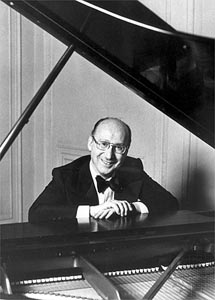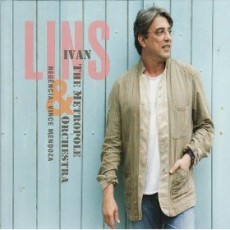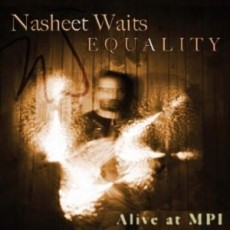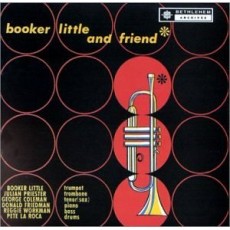
Daily Dose Of Jazz…
Sammy Cahn was born Samuel Cohen on June 18, 1913 in the lower East side of New York City and began his music career studying the violin. After only three lessons at thirteen years he joined a small Dixieland band called Pals of Harmony, touring the Catskill Mountains summer resorts and play private parties. By16 he was writing his first lyric “Like Niagara Falls, I’m Falling For You” and his songs were being sung on the vaudeville stage by Jack Osterman.
Much of Cahn’s early work was written in partnership with Saul Chaplin writing witty special material for Warner Brothers musical short subjects. They continued to work with then up-and-comers Milton Berle, Danny Kaye, Phil Silvers and Bob Hope. Cahn soon began a partnership with Lou Levy and writing for Jimmie Lunceford, Glen Gray, Tommy Dorsey and eventually teaming with Jimmy Van Heusen and writing for Frank Sinatra.
His impressive career spawned lyrics for Until The Real Thing Comes Along, Love and Marriage, Three Coins In The fountain, I Fall In Love Too Easily, All The Way, I’ll Never Stop Loving You, The Second Time Around and All My Tomorrows among many more.
Cahn was inducted into the Songwriters Hall Of Fame, nominated for 23 Academy Awards, five Golden Globes and an Emmy. He received four Oscars, and had the Sammy Awards created in his honor for movie songs and scores.
Sammy Cahn, best known for his romantic lyrics for film, Broadway and stand alone songs, many of which have become jazz standards, passed away on January 15, 1993 at age 79 in Los Angeles California.
More Posts: lyrics

Daily Dose Of Jazz…
Sam Wooding, born on June 17, 1895 in Philadelphia, Pennsylvania learned to play piano as a child, eventually becoming a bandleader who led several big bands in both the United States and abroad. In 1925 while performing at Small’s Paradise in Harlem, a Russian impresario hired him to be the pit band for the Chocolate Dandies in Berlin. That date led him to a record date for Vox Records with Doc Cheatham, Herb Fleming in the band.
In 1929, with a change in personnel, Wooding’s orchestra made more recordings in Barcelona and Paris for the Parlaphone and Pathé labels. He would remain in Europe, performing on the Continent, in Russia and England through most of the 1930s. He became an expatriate and his overseas stays made him virtually unknown in the States, building staunch jazz fans that liked what his orchestra offered.
Returning home in the late 1930s, when World War II seemed a certainty, Wooding began formal studies of music, attained a degree, and began teaching full-time, counting among his students trumpeter Clifford Brown. During this period he would lead and tour with the Southland Spiritual Choir. By the early 1970s, he formed another big band and took it to Switzerland for a successful concert, but this venture was short-lived. Pianist, arranger and bandleader Sam Wooding passed away on August 1, 1985 at age 89.
More Posts: piano

Daily Dose Of Jazz…
Ivan Lins was born on June 16, 1945 in Rio de Janeiro, Brazil. He began studies at the Military College in Rio, received an industrial chemical engineering degree from the Federal University and spending several years in Boston, Massachusetts with his naval engineer father, he continued his graduate studies at M.I.T. He considered a career in volleyball before discovering his considerable musical talent.
As a pianist Luiz Eça and João Donato influenced Lins. While in college he performed in a jazz-bossa trio. In 1970 Ivan started his music career by winning second place in a competition with the song “O Amor É o Meu País” and that same year famed Brazilian singer Elis Regina recorded his composition “Madalena”. He would host the TV Globo show Som Livre Exportaçã, partner with Vitor Martins and the two would become MPB history with romantic verses and political anthems.
His influence of jazz and bossa nova became evident in his music and an invitation from Quincy Jones brought him to international attention. Quincy recorded “Velas” (Sails) which won a Grammy, and George Benson recorded his Love Dance, and Paul Winter recorded “Velho Sertão”, renaming it Common Ground. It wasn’t too longer afterward that jazz artists like Patti Austin, Herbie Mann, Sarah Vaughan, Joe Pass, Diane Schuur, Manhattan Transfer and Ella Fitzgerald were recording his melodies.
He has recorded three-dozen albums, won two Latin Grammy awards, has won Best MPB Album of the Year, and many of his tunes have been part of Grammy winning albums and is one of the three most recorded Brazilian composers outside their native land.

Daily Dose Of Jazz…
Nasheet Waits was born on June 15, 1971 in New York City, the son of legendary drummer Freddie Waits, and learned to play the drums as a child. Before pursuing a music career, he studied psychology and history at Morehouse College. Transferring to Long Island University, he graduated with a degree in music but during his matriculation, in 1970, drummer and instructor Michael Carvin, who laid a great foundation for Waits, secured him a spot in Max Roach’s M’Boom.
Waits has recorded or performed as a sideman with such talents as Fred Hersch, Antonio Hart, Joe Lovano, Jason Moran, Andrew Hill, Bunky Green, William Parker, Eddie Gomez, John Medeski, Ron Carter, Hamiett Bluiett, Steve Coleman, Bill Lee, Jackie McLean and Mark Turner among others.
Acquiring the moniker “Heavy” as a part of his jazz legacy, Nasheet has been active on the jazz scene since 1993 and delivered his first album as a leader in 2009, titled “Equality”. Waits has recorded and toured extensively in Africa, Europe, Japan, Canada, South America and the United States. Amidst all of that, Nasheet teaches private lessons to youth and adults, stressing a personal approach to the drums and music and remains dedicated to exploring his role and creative path in music.
More Posts: drums

Requisites
Booker Little and Friends: At the time of Booker Little’s death in 1963, he was just 23 years old, he was already far more than a promising trumpet talent. This reissue of his landmark fourth and final session as a leader, “Victory And Sorrow”, showcases his compositions with trumpet voiced against a backdrop of tenor and trombone. It demonstrates Little’s interest in a mix of complex moods and advanced harmonies, use of multiple keys to create simultaneous joy and mourning, and rhythmic shifts, flaring runs, and surprising intervals.
Personnel: Booker Little – trumpet, Julian Priester – trombone, George Coleman – tenor saxophone, Donald Friedman – piano, Reggie Workman – bass, Pete LaRoca – drums
Record Date: Bethlehem / August 1961 – September 1961
Songs: Victory And Sorrow, Forward Flight, Looking Ahead, If I Should Lose You, Calling Softly, Booker’s Blues, Matilde, plus two previously unreleased takes – Matilde (Alt. Take 4), Matilde (Alt. Take 7)
More Posts: collectible,trumpet






